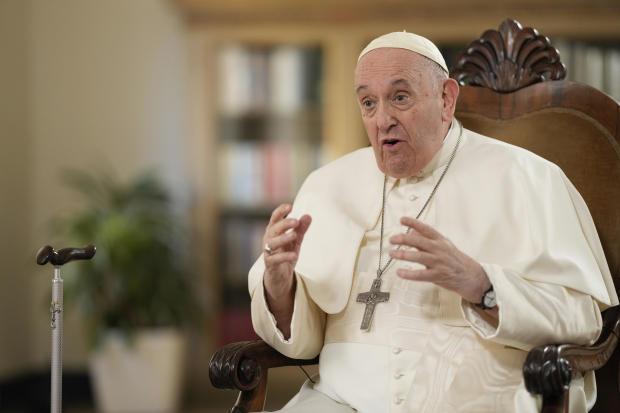Loneliness is on the rise in Australia and it’s leading mental health advocates to ask, what can people do about it?
Surveys have found more than 50 per cent of people report greater feelings of loneliness since the start of the coronavirus pandemic, with young or vulnerable groups particularly at risk.
Phil McAuliffe established himself as The Loneliness Diplomat in 2018 and The Loneliness Guy in 2020 after going through his own bout of loneliness while working as a diplomat for the Australian government in Korea.
It was seven years ago, just before his 40th birthday, that Mr McAuliffe realised he was not living his authentic life, and that coming out as lonely also meant coming out as gay to his family, including his now ex-wife.
“There was something missing and I didn’t understand what it was, but then how could I talk to someone about it when … I didn’t feel that I had had anyone to talk to?” he said.
No-one to call
Mr McAuliffe hadn’t kept in touch with his university friends and as everyone became busy with work, family, relationships and children, he didn’t feel he could actually pick up the phone.
“I said to my ex-wife … ‘I think I might be lonely’. And she’s like, ‘I’ve been wondering about that’,” he said.
It was when he decided to call his employer’s Employee Assistance Program (EAP) hotline from his office in Korea that he understood Australia needed to fix how it understood, dealt with, and accepted loneliness.
“I’ve since realised that pity is feeling like we’re doing something about loneliness, in an understanding way,” he said.
“But it actually puts distance between the person who’s saying that they’re lonely, and the person receiving that news.”
Now happily married with two children and working as a guest speaker and coach for diplomats and LGBTQIA+ people, Mr McAuliffe has left the diplomatic service and is working to teach people how to identify and talk about loneliness.
In regional Victoria, the City of Greater Bendigo has included social connection and the reduction of loneliness, as well as community participation and belonging, as factors in its five-year healthy living strategy.
As part of the strategy, it is delivering the Social Prescribing Project in partnership with Murray Primary Health Network and local providers.
Bendigo-based comedian and commentator Simone Amohanga told ABC Central Victoria Breakfast host Rebecca Norman that strategies to defeat loneliness were needed in Australia.
“I’ve lived alone, which is different to being lonely, for 17 years and I don’t greatly struggle with loneliness, but I think it’s more around,” Ms Amohanga said.
“Loneliness to me is more about not being heard and understood.”
Loneliness vs social isolation
The AIHW defines social isolation as the state of having not much contact with others, whereas loneliness, according to a 1982 study by academics Letitia Anne Peplau and Daniel Perlman, describes the negative feelings someone has about having a lower level of social contact than desired.
One Dutch supermarket has introduced slow checkout lanes for lonely seniors who just want to have a chat.
The checkout operator deliberately takes their time scanning items to chat with the customer. The trial was so popular that the company has rolled out the initiative in 200 stores across the country.
Working for Catholic Education Sandhurst gives Dja Dja Wurrung and Yorta Yorta man Troy Firebrace an insight into the minds of students and educators at more than 50 schools across north and central Victoria.
He believes a sense of being misunderstood, or struggling to understand others, is among the issues contributing to the loneliness children and young people can experience.
Mr Firebrace, who works as an Aboriginal education officer and an artist, said preconceived notions could affect people’s ability to connect.
“Having conversations with people with a mindset of being open to who they are, regardless of who they are, is so important,” he said.
“That’s the only way in which we can live a balanced life — to feel as if we’re not isolated by society, to feel as if we are accepted within that moment.
Calls for help remain high
Calls to Lifeline about loneliness and isolation remain high in the Loddon Mallee region, which encompasses more than a quarter of the state of Victoria.
Lifeline Loddon Mallee executive officer Lisa Renato said there was an assumption that the number of calls related to loneliness and isolation would drop once lockdowns lifted.
“That just isn’t what we’ve seen at all,” she said.
“This level of people reaching out when they’re feeling lonely or isolated is a really positive and encouraging sign.
For Mr McAuliffe, he got tired of pretending that everything was fine.
“I decided to start showing up in the world more as me. And part of that process, and this took a few years, was peeling away at a couple of aspects of myself,” he said.
“I came out to my then-wife and then a few years later, to some close friends. That was coming out as gay with the same-sex attraction, but also coming out as lonely.”
Mental health in your inbox
Get a selection of the best mental health content from across the ABC by subscribing to our monthly newsletter







